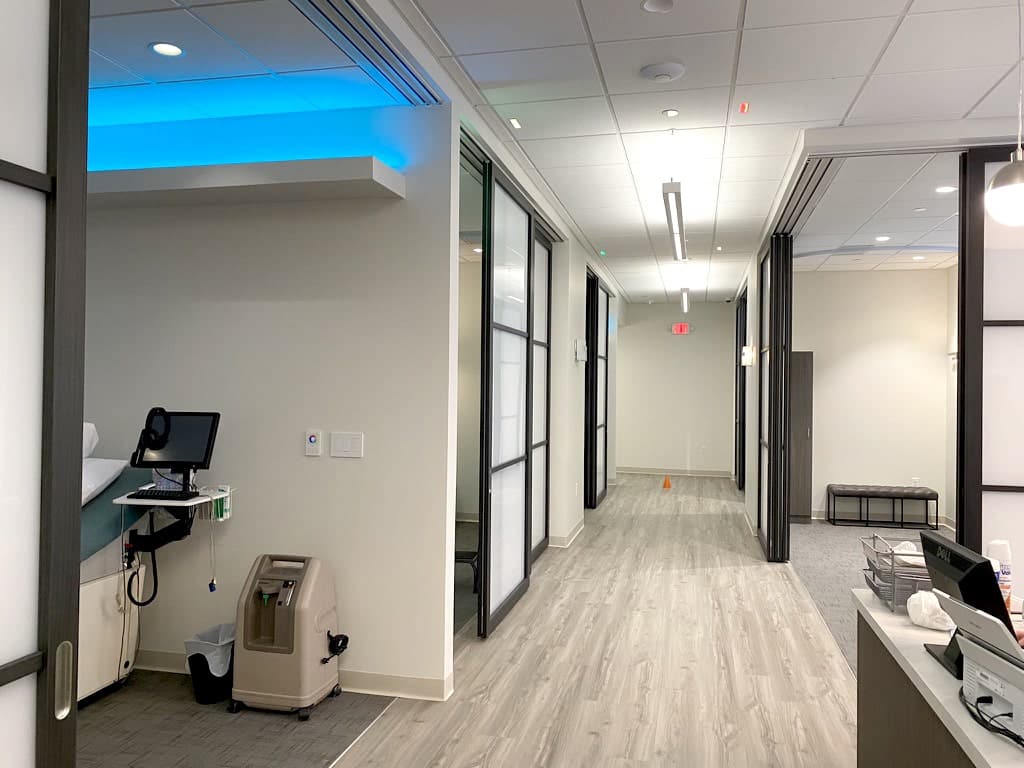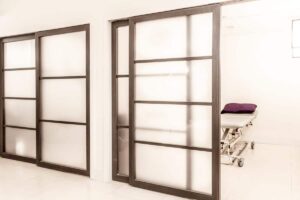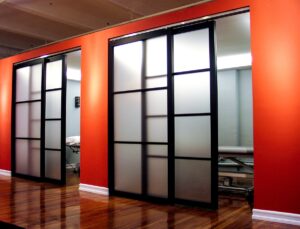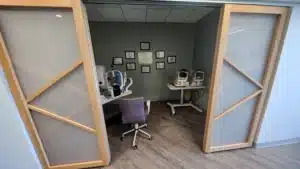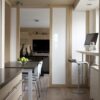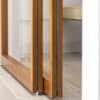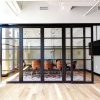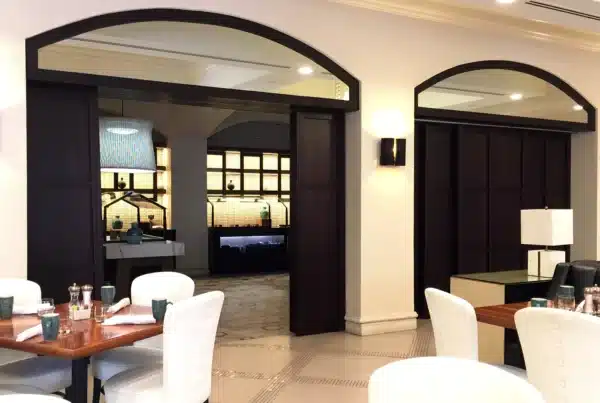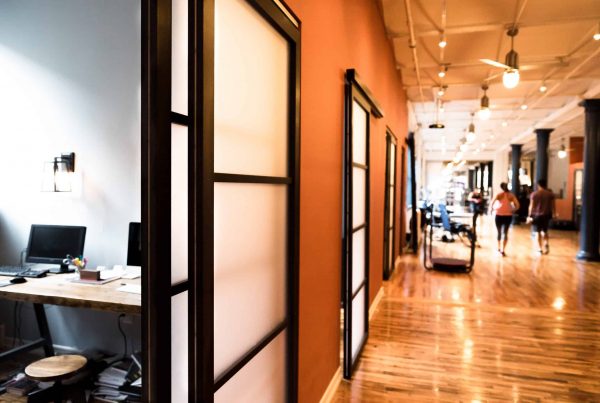Summary:
- Better hospital room design supports healing. Design choices directly impact patient recovery, stress levels, infection risk, and staff efficiency—making thoughtful spatial planning a key part of modern healthcare.
- Raydoor systems improve privacy, cleanliness, and mobility. From translucent sliding doors that protect dignity while letting in light to trackless designs that simplify cleaning and movement, Raydoor helps optimize hospital workflows and patient care.
- Flexible layouts enable rooms to adapt. Modular options like stacking walls and demountable panels allow hospitals to reconfigure spaces as needed—whether for new care models, staff changes, or evolving patient needs.
- Staff visibility and patient connection matter. Raydoor’s translucent panels and pivot door systems offer visual access without intruding, and help support patient-family interaction with better flow between zones.
- Comfort and control improve outcomes. Custom finishes, warm materials, and natural light help make rooms feel less clinical and more healing—because design isn’t just about space; it’s about how people feel in it.
Every detail matters in healthcare environments—including room design. A thoughtfully designed hospital room can directly influence patient recovery times, infection rates, staff efficiency, and overall well-being.
As hospitals evolve to meet higher standards for patient-centered care, architects and facility managers are rethinking how physical spaces can be reconfigured to support health and wellness. Here’s how room design can be a powerful tool for improving outcomes in healthcare settings—and where Raydoor systems can help make the difference.
1. Enhanced Privacy
Privacy is a cornerstone of patient dignity, and it also promotes effective care. Patients need visual and acoustic separation from others to feel safe and respected during consultations, examinations, and rest. Improved privacy can also reduce patient stress and enhance overall satisfaction with their hospital experience.
The Solution: Sliding Room Dividers
Raydoor’s sliding doors and walls offer a flexible way to maintain privacy or open up the space when required—while still letting in ambient light through our TWINFRAME™ acrylic glaze inserts. Features include:
- Optional locking hardware to add security and discretion
- Translucent glazing for visual separation without closing off the space
- All of our systems can be designed with no floor track, reducing tripping hazards and simplifying cleaning
2. Noise Reduction
Excessive noise in hospitals is a well-documented source of patient stress and sleep disruption. Effective noise control supports better rest, faster recovery, and fewer medical errors due to communication lapses or distractions.
The Solution: Acoustic Dampening
Adding design features like soundproofing foam for walls and door panels can help dampen ambient noise from hallways and adjacent rooms. This allows patients to rest and recover without disruptions.
Raydoor’s sliding and folding wall systems are primarily designed to help facilitate visual privacy—but they can easily be augmented with soundproofing materials to reduce noise as well. Here are a few examples of how adding one of our systems can make hospital rooms less noisy:
- Can be specified with thicker or layered glazing options for acoustic performance
- Break up larger, noisier spaces into more peaceful patient zones
- Easy to install and reconfigure as needs change
3. Improved Infection Control
Cleanability and infection prevention are top priorities in every healthcare setting. Traditional walls and doors can be hard to disinfect thoroughly, especially around tracks, hinges, and seams. Room dividers and barriers must be designed with hygiene in mind.
The Solution: Trackless Sliding Doors and Smooth-Surface Materials
Raydoor systems eliminate the need for floor tracks and minimize hard-to-clean hardware. Even our swinging door systems are designed to operate without jambs and incorporate other components where they can’t easily pick up dust or germs. Features include:
- Top-mounted tracks to reduce contact points and simplify floor sanitation
- Panels made from non-porous, easy-to-clean acrylic glazing
- Minimal hardware and concealed hinges for streamlined maintenance
4. Better Patient & Staff Mobility
Efficient movement through hospital rooms reduces caregiver strain and supports patient safety. Clunky doors or rigid layouts can get in the way of both.
The Solution: Wide-Clearance Sliding or Folding Wall Systems
Raydoor’s sliding walls allow for generous clearance when retracted—ideal for bed transfers, wheelchair access, and equipment movement. Here are a few of the benefits:
- Up to 100% opening clearance with no floor track
- Systems can span large openings without taking up swing space
- Lightweight construction to support easy, one-handed operation
5. Increased Comfort & Well-Being
Design factors that make patients feel more at home can actually help them get better. For example, natural light can play a significant role in patient recovery. That means making rooms feel warm and personal—even temporarily—can significantly improve outcomes.
The Solution: Dividers with Customizable Glazing & Frame Options
Opaque room dividers leave patients in the dark unless their beds are near exterior walls—but translucent dividers that protect privacy while letting in natural light allow everyone to benefit.
Raydoor systems offer dozens of frame finishes and acrylic inserts to enhance the look and feel of any room. Options include:
- Warm wood veneer options to create a residential, comforting feel
- Frosted or linen-like glazing to add softness while protecting privacy
- All systems can be designed to seamlessly match the interior aesthetic
6. Flexibility in Room Usage
Healthcare spaces often need to evolve—converting a waiting area to an exam space or turning one large room into two private ones. Walls that can easily adapt allow facilities to maximize their available space.
The Solution: Sliding, Folding, or Stacking Walls
All Raydoor systems are highly modular and perfect for reconfiguring open spaces. Our stacking walls are especially versatile, allowing you to move them in unexpected ways to facilitate easier privacy or access to your space.
- Panels stack neatly either parallel or perpendicular to the track
- Optional pivot doors allow for ADA-compliant egress
- Also great for flexible-use areas like pre-op bays, family waiting zones, or consult rooms
7. Easier Monitoring by Staff
While privacy is important, visibility also plays a role in keeping patients safe. Staff need to quickly assess conditions without intruding, especially in high-acuity units or pediatric wings.
The Solution: Translucent Panel Systems with Partial Visibility
Raydoor’s customizable insert panels let you balance openness and oversight.
- Choose levels of opacity to allow monitoring without sacrificing dignity
- Large panel sizes and clear upper sections preserve line-of-sight
- Systems can be used to divide patient spaces while keeping staff engaged
8. Improved Patient & Family Interaction
Healing is an emotional process as well as a clinical one. Room design that accommodates family presence can contribute to better outcomes and stronger patient support systems.
The Solution: Pivoting Swinging Doors for Private Family Areas
Raydoor’s swinging doors create inviting entries and exit points between patient areas and adjoining family zones.
- Concealed pivot hardware for smooth operation and minimal visual disruption
- Double-panel options allow for grander entries or larger clearances
- Easy to integrate into demountable walls or hybrid room layouts
Design Hospital Rooms That Heal with Solutions from Raydoor
Hospital room design isn’t just about compliance or construction—it’s about care. At Raydoor, we work with healthcare architects, interior designers, and facilities managers to bring spaces to life in a way that promotes healing, safety, and human dignity.
It’s time to reimagine your spaces and go a step further for the people who rely on them. Request a quote to speak with a Raydoor design specialist who can help you determine the best system for your needs.
